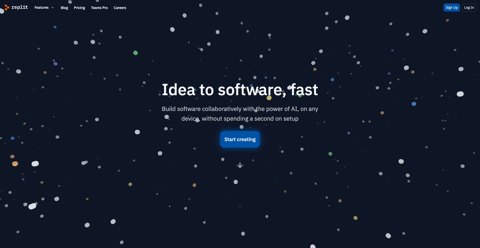MIDI-GPT: AI-powered MIDI file generator using GPT-35-turbo and NumPy for versatile music production
by Jose Sancho

Table Of Content
- Introducing MIDI-GPT: The Fusion of AI and Music Generation
- Understanding the Capabilities of MIDI-GPT Fork Repl37
- Exploring GPT-3.5-turbo: The Powerhouse Behind MIDI-GPT
- Few-Shot Prompting: Tailoring MIDI Outputs with Precision
- The Role of NumPy in MIDI-GPT's Calculate() Function
- Analyzing the Output: Mean, Variance, and Other Statistical Measures
- The Significance of MIDI Export Titling in MIDI-GPT
- MIDI-GPT's Creative For Loop Project: A Programming Challenge
- How MIDI-GPT is Changing the Landscape of Music Production
- MIDI-GPT and User Interaction: The Input Game
- Troubleshooting Common Issues with MIDI-GPT
- Future Developments and Enhancements of MIDI-GPT
- Summary and Final Thoughts on MIDI-GPT's Impact
- Related AI Tools for MIDI-GPT (Ordered by relevancy)
- References:
Unleash the Power of AI and Transform Your Life Today! Click here to go to MIDI-GPT
Introducing MIDI-GPT: The Fusion of AI and Music Generation
Imagine if the complexity and emotion of music could be captured and reproduced by artificial intelligence. This isn't a distant future scenario – it's happening now with MIDI-GPT. Blending the capabilities of machine learning with the versatility of music production, MIDI-GPT stands as a testament to how far AI has come. But what exactly is MIDI-GPT, and how can it serve musicians and producers alike?
Key Takeaways:
| Feature | Description |
|---|---|
| AI-powered music | Utilizing GPT-3.5-turbo, MIDI-GPT can create diverse musical compositions. |
| Versatile tool | It merges AI innovation with music production tools for unique creative potential. |
| Statistical analysis | MIDI-GPT analyzes its outputs for mean, variance, and more to refine compositions. |
| User interaction | The platform offers intuitive interaction for users to influence music generation. |
| Future developments | MIDI-GPT promises continuous improvements and new features. |
With MIDI-GPT, your music creation process is about to get a major upgrade, diving into a world where the boundaries between technology and art become increasingly blurred.
Understanding the Capabilities of MIDI-GPT Fork Repl37
MIDI-GPT's Fork Repl37 is a specialized branch of the main MIDI-GPT project, designed with specific enhancements that cater to particular music production needs. This innovative tool demonstrates:
- Real-time generation of MIDI sequences
- Ability to incorporate user-provided musical motifs
- High customizability for genre, tempo, and instrumentational outputs
Using MIDI-GPT Fork Repl37, producers can spawn ideas that would perhaps take hours to conceive traditionally, enabling more time for refinement and production.
Exploring GPT-3.5-turbo: The Powerhouse Behind MIDI-GPT
At the core of MIDI-GPT is OpenAI's GPT-3.5-turbo. This robust AI model lends its learning capabilities to enable MIDI-GPT to:
- Generate coherent and complex musical sequences
- Learn from a vast database of music to produce varied styles
- Offer users the ability to give prompts, which the AI then uses to create tailored musical pieces
The versatility of GPT-3.5-turbo means that MIDI-GPT is able to handle anything from classical to contemporary genres with ease.
Few-Shot Prompting: Tailoring MIDI Outputs with Precision
Few-shot prompting is a cutting-edge feature where MIDI-GPT can create music based on just a few examples or prompts. This allows for:
- High-level customization of music based on user preference
- Quick iteration and experimentation with different music styles
- More control for the user in the creative process
Few-shot prompting is akin to instructing a human composer, but with the speed and scalability that only AI can offer.
The Role of NumPy in MIDI-GPT's Calculate() Function
NumPy is a fundamental part of the MIDI-GPT's framework, especially within its calculate() function. This library is crucial for:
- Efficient computation of numerical data for music generation
- Reliable performance in processing large arrays of musical information
- Providing a robust foundation for statistical analysis
NumPy enables MIDI-GPT to process musical data with the precision and speed required for real-time music generation.
Analyzing the Output: Mean, Variance, and Other Statistical Measures
To ensure that the music generated by MIDI-GPT maintains a high quality, statistical measures are employed:
- Mean analysis offers insight into the average pitch, duration, and intensity of notes.
- Variance helps to understand the diversity in the music's dynamics.
- Other measures, like tempo variance, provide a deeper look into the rhythmic characteristics.
By analyzing these statistics, MIDI-GPT can refine its output to better align with human musicality.
The Significance of MIDI Export Titling in MIDI-GPT
Effective MIDI export titling is more than just a convenience; it's crucial for:
- Organizing and identifying files quickly
- Enhancing workflow efficiency for users
- Assisting with the post-generation editing process
MIDI-GPT takes into account the stylistic choices and prompts of the user to generate appropriate and descriptive file names.
MIDI-GPT's Creative For Loop Project: A Programming Challenge
The Creative For Loop Project within MIDI-GPT serves as a programming challenge that:
- Encourages users to push the boundaries of algorithmic composition
- Integrates coding prowess with musical creativity
- Demonstrates the versatility and adaptability of the MIDI-GPT environment
This project is ideal for those who wish to deeply engage with the technological aspect of music creation.
How MIDI-GPT is Changing the Landscape of Music Production
MIDI-GPT is revolutionizing music production through:
- AI-assisted composition, which provides a new source of inspiration
- The democratization of music production, making complex composition accessible to all
- Increasing efficiency, allowing musicians to produce more in less time
MIDI-GPT is not just a tool; it's a transformative force in the music industry.
MIDI-GPT and User Interaction: The Input Game
User interaction is central to MIDI-GPT's design. The Input Game is an innovative feature that:
- Makes the music generation process dynamic and interactive
- Allows users to guide the AI in real-time, influencing the outcome of the composition
- Provides an engaging way for users to learn more about music theory and composition
With user input, MIDI-GPT becomes not just a tool, but a musical collaborator.
Troubleshooting Common Issues with MIDI-GPT
As with any complex tool, users may encounter issues with MIDI-GPT. This section addresses common problems such as:
- Technical glitches during MIDI file generation
- Integrating the generated music with other production software
- Understanding how to effectively utilize the AI's capabilities for optimal results
Clear, step-by-step troubleshooting guides can help users overcome these hurdles and ensure a smooth creative process.
Future Developments and Enhancements of MIDI-GPT
The future of MIDI-GPT is bright, with plans for enhancements that include:
- More nuanced emotional expression in music generation
- Greater integration with digital audio workstations (DAWs)
- Enhanced machine learning models for even more sophisticated outputs
The continuous evolution of MIDI-GPT aims to keep it at the forefront of AI-powered music production tools.
Summary and Final Thoughts on MIDI-GPT's Impact
MIDI-GPT has ushered in a new era for music production, offering unparalleled versatility and creativity. As we reflect on the implications of such a tool:
- We see a future where AI assists artists in bringing new sounds to life
- We recognize the potential for personalized and unique music accessible to anyone
- We envision a collaborative space where technology meets human creativity in harmony
MIDI-GPT is more than a tool; it's a harbinger of the boundless possibilities AI brings to music and beyond. This is just the beginning of a symphony of innovation that will echo for years to come.

